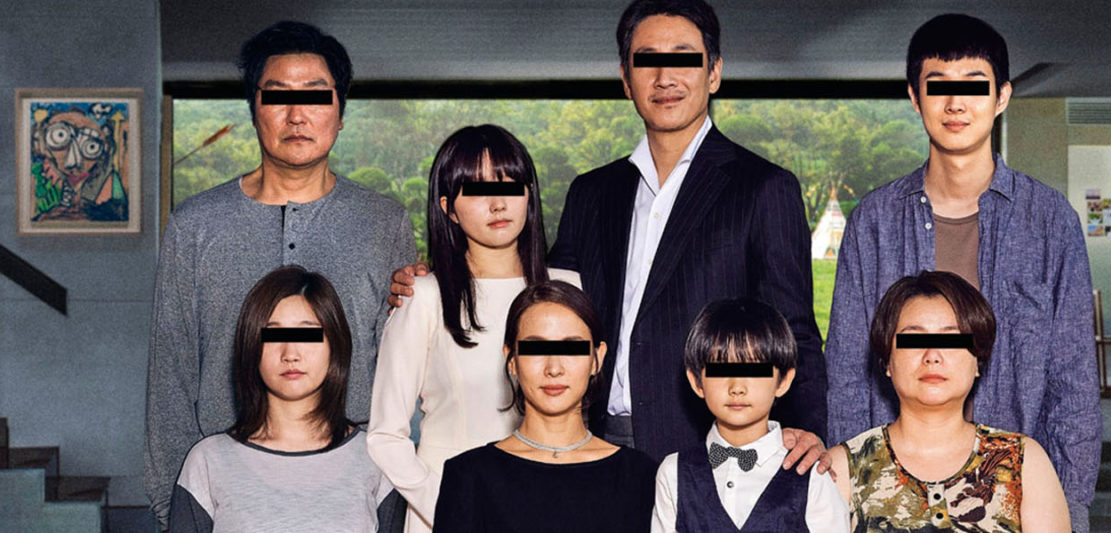
“Parasite,” a 2019 film directed by South Korean filmmaker Bong Joon-ho and co-written by Joon-Ho and Han Jin-won, triples as an intimate family drama, dark comedy, and at several points, a menacing thriller. Centering on Kim Ki-woo (Choi Woo Shik), the son of a deeply impoverished family, “Parasite” explores the simultaneously maniacal and heartbreaking lengths to which the underclass will in order to reach some semblance of financial security. Meanwhile, a wealthy family becomes the target of their machinations due to the naive anxieties of the rich family’s matriarch, Park Yeon-kyo, portrayed by the brilliant actress Cho Yeo Jeong.

Yeon-Ko (Cho Yeo-jong) pondering difficult choices.
Due to the film’s painstaking efforts to induce its audience’s sympathy for Kim Ki-woo’s struggling family, one is coaxed into rooting for what would, in most other contexts, be seen as dastardly sabotage. For instance,Kim Ki-woo’s early replacement for the rich family’s previous tutor Min (Seo-joon Park) starts mischievously enough, as he does not truly have the accreditation that his sister Kim Ki-jung (Park So Dam) photoshops for him. Then, the movie provides an exquisitely enjoyable scene of Kim Ki-jung (who’s renamed herself “Jessica” to arouse the class connotations of a supposedly-American upbringing) goading Park Yeon-kyo to hire her by miming the pretensions of art therapy and exploiting her concern for her son’s mental state.
The schemes persist with scenes of Kim Ki-jung sabotaging the family’s driver Yoon (Keun-rok Park) by planting her worn panties in the car, and her subsequently-hired father engineering the housekeeper Moon-gwang (Lee Jung Eun)’s dismissal by framing her as having hidden her tuberculosis diagnosis. These scenes, while immensely enjoyable upon first watch, actually suppose a discouragingly dark dynamic in which the poor must destroy one another’s chance at livelihood in order to acquire their own nest egg. As in real life, one is concerned with celebrating the triumphs of the working poor while perhaps forgetting those who fell before reaching the finish line.
:no_upscale()/cdn.vox-cdn.com/uploads/chorus_asset/file/16295857/8827af1028f243ae9ec9e33d2a6dcb63.jpg)
Original family maid Moon-gwang (Lee Jung Eun) serves a peach-less fruit plate as their English lesson takes place.
The movie continues in this way, framing the wealthy family’s home as a cornucopia of spoils to be won, if only the other competitors in this “Hunger Games”-esque battle royale can be eliminated. Invariably, housekeeper Moon-gwang returns, revealing that her husband Geun-se (Myeong-hoon Park) has been living beneath the wealthy family’s home as if a literal parasite.
If Kim Ki-woo’s father Kim Ki-taek (brilliantly played by Song Kang Ho) represents the begrudging and backhanded commitment to serving the wealthy endeavored by many of the working poor, Geun-se, in his seemingly fanatical worship of the wealthy Park family’s patriarch Park Dong-ik (Lee Sun Kyun) represents the oblivious gratitude some of the less fortunate immerse themselves in. By the way, actress Jong-eun Lee (playing Moon-gwang) provides an absolutely phenomenal and terrifying performance in this nightmarish portion of the film.
Director Bong Joon-ho does a magnificent job of shifting the film’s tone during and after the reveal of the “parasite.” The audience is treated to an extremely tense exchange upon Moon-gwang’s arrival, and the suspense leading up to the reveal of her husband turns up the heat in this comic thriller.
One of the films major themes, class struggle, is also excellently depicted in the exchange between Kim Chung-sook (Chang Hyae Jin), Kim Ki-woo’s mother who has replaced Moon-gwang as housekeeper, when the former refuses to offer mercy regarding Moon-gwang’s secret. However, Kim Chung-sook’s own secret, that her family has feigned unfamiliarity with one another to maintain their employment, destroys her leverage only seconds later.
Ultimately, the poor family and the poor couple come off as equally underhanded and tragic, while the wealthy Park family is primarily devoid of empathy and detached from the struggles of their employees more than anything. All of the characters, while trapped in their own anxiety-ridden machinations, are but symptoms of macro-happenings. All of the impoverished characters, through a combination of personal failings and lack of larger societal support, resort to devious methods of survival and economic advancement.

Bong Joon-ho manages to deliver a more-than-worthwhile viewing experience which seems deceptively longer than it feels at two hours and twelve minutes. The film is simply chock full of riveting performances, consistently shifting emotional hills and valleys, and a plethora of moments simultaneously imbued with comedy and dark realizations. “Parasite” is a terrific dramedy, richly deserving of its six Oscar nominations, that will burrow its way into your brain and linger there for quite a while after the first viewing.